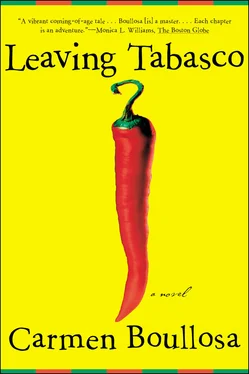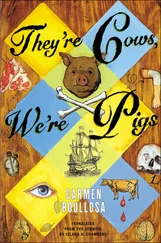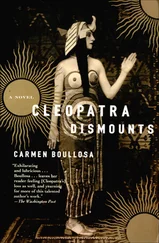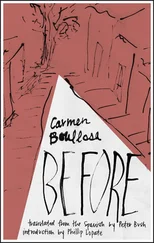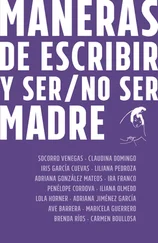Today is the first time that I have recalled these details. I accept now that I didn’t dream it, that I wasn’t guilty of having produced it. It was those two who produced it, and I witnessed it by mistake. Certainly it wasn’t my imagination that hung them so grotesquely in the hammock or drove the weight of the man against the naked buttocks of the woman, or made them groan so desperately. They had repeated that scene many a Sunday. Maybe, trusting to my habit of sleeping deeply, they took me along in the car so that nobody, neither Grandma nor the other parishioners, would suspect. I no longer blame myself for it, nor do I blame them. I too would have loved the priest, and if I’d been him I wouldn’t have resisted the charms of my mother.
Finally, today, I can take a deep breath. I’m not the monster who dreamed up an abominable scene to wound the heart and body of a little girl. Delmira, it wasn’t you. Take it easy, Delmira, take it easy.
On Monday, after I’d gotten back from school and eaten supper, I took advantage of Dulce’s inattention to scurry off to my wardrobe. I quickly opened my little chest, eager to read the piece of paper it contained. I took it out, but it was hardly in my hands when I heard them all coming toward my room, arguing among themselves. So I hastily locked the chest and hid the paper in the palm of my hand. They came in like a whirlwind, Dulce, my mother, my grandmother, Ofelia, who came to do the cleaning, and Petra, who came to do the washing and ironing. Instead of folding up the paper to stop them seeing it, I started to roll it up. Nobody turned to notice me, but I felt that at any moment any one of them might cast an acid, burning glance at what I was doing. So I rolled it up as fast as I could, as tight as I could make it, while they went on arguing loudly about my crinoline skirt. Dulce was saying that it was badly washed, that it had a stain. Petra was saying that she’d left it spotless, and that if it had a stain, it was Ofelia’s fault, because she was the one who’d hung it in my wardrobe. Then, without pausing in their avowals that yes, it was dirty and that no, it wasn’t dirty, they pulled the skirt out of the wardrobe to examine it, opening up the balcony windows a little to cast some light on the matter. I kept working on my roll, which I now had the impression was enormous because I couldn’t manage to complete the job.
There certainly was a stain on the crinoline. It looked like a dirty fingermark, or an earth stain. “Poor Ofelia,” I thought when I saw it, “now they’ve really started something.” Petra announced that she wasn’t going to wash it again, not for anything, that she wasn’t going to all the trouble of starching and ironing it all over again, because it was Ofelia’s fault. Then poor Ofelia, with her voice trembling, said, “It doesn’t matter, madam. I didn’t dirty it but I’ll wash it.” This infuriated Petra. “So, why don’t you admit it then? Tell the truth. You had it in your filthy paws after you’d been picking your nose.” Then Dulce waded in, saying that an idiot like Ofelia would be bound to burn it with the iron and that Petra had better do it. The argument was getting heated. Dulce, whose complexion was yellow (her face, typical of the Otomi tribe, had an oriental cast to it), had by now turned red and was totally blowing her lid. Nobody was showing any self-control.
“In my opinion, there’s no need to make such a fuss over a little matter,” I heard myself saying, with a new confidence now that my paper was totally rolled up, hidden like a tube between my fingers. “I know what we should do. After all, nobody’s going to see the stain. The crinoline goes under my dress. Once I put my dress on, who’ll know the difference?”
“In this house nobody goes dirty,” brayed Grandma. “If you want to go dirty, you’d better do it somewhere else. You are the limit!”
“It’s your fault, Dulce,” my mother accused her. “The kid is half wild because you let her get away with—”
I saw that the storm was about to burst, and since nobody was paying me any attention I slipped away toward the garden without uttering a peep, to see what the seller of shawls, veils, scarves, and rebozos had written down for me. But I’d barely gotten my two feet outside the door when the storm broke over me again.
“It’s all your fault, and you don’t care! You’re heartless!” my mother was yelling.
“I’m talking to you, and you go turn your back on me,” added my grandmother.
“Shitty kid, they’re going to blame me now all because of you,” howled Dulce. “Where you going?”
“I bet it was her,” accused Petra. “She was the one who dirtied it with her own filthy hands.”
Ofelia was also glaring at me with rage, as if I was the one responsible for everything that had gone wrong in her life.
At first I wasn’t even going to say “I’ve a right to speak,” because I was used to these irrational outbursts of foul temper and I knew they never took me into account, anyway. But now they were all staring at me in silence and I felt obliged to mutter some explanation.
“But nobody was talking to me … It’s got nothing to do with me … I’m sorry, Grandma, I didn’t realize you wanted to say something to me … I was just going out to get some fresh air, because it was starting to get hot in the room.”
“Get hot! … nothing gets you hot, you cold-blooded snake,” said Grandma. “Nothing ever matters to you. If it was up to you, you’d go around dressed like one of those Indians at the market.”
Years later I would confirm the truth of her words, but at that moment I gave absolute proof to her allegation of my cold-bloodedness. In front of their infuriated eyes, I opened up my divine roll of paper and read it. All it had on it was a telephone number, which I memorized. I rolled it up again between finger and thumb, and went through the motions of raising it calmly to my lips like a cigarette.
My grandmother shrugged her shoulders, as if I was a lost cause, and turned her back on me. Then she resumed her discussion of the unfortunate crinoline and kept it up till darkness fell and it was time for her to bar the door, get out the combs, and start telling her tales.
“Well, you see,” began Grandma, “after the rebels came to the farm for the third time and cleared out all our provisions, and raped the women servants, and killed one or two of the men servants, though none of them had put up any resistance — not showing resistance was part of the deal we’d struck with the rebels, so they’d leave us in peace, me, my mother, and my three sisters, that is — Grandfather decided that he’d seen enough of their shenanigans, and that we’d better move out and go live in our house in town. That’s how we came to be where we are today, even though it’s not a patch on the house at the farm. Our kitchen here can’t compare with the one we had out there, either; it had a brick oven for bread and twelve burners heated by coal. The living room here is piddling compared to the farm’s, with its dance floor. And these bedrooms are poky beside those at the farm, where each of us had a dressing room to ourselves almost the size of Delmira’s room. In fact, her room used to be a dressing room when we first moved here and we four sisters shared it, fighting over every inch, fitting in our collars and ribbons and other bits and pieces, which I’m not going to mention now, for making our dresses, because back then things weren’t like they are nowadays, when girls wrap themselves in a bit of cloth and call it a proper dress. The kitchen was different too, and the bedrooms, not to mention the gardens and the patios, and the fountains my father had had built. He’d brought over some tall black workers to haul in special stone from unheard-of places with unpronounceable names and he had it polished till it shone like mirrors. There were orchards as well and an avenue, and a promenade we’d had built through the cocoa plantation, and grassy paths bordered with exotic flowers …
Читать дальше
